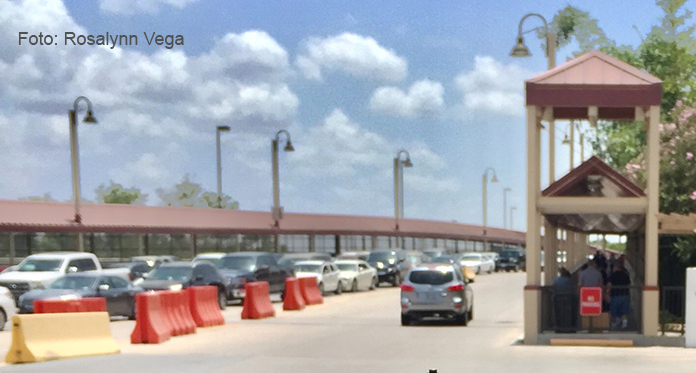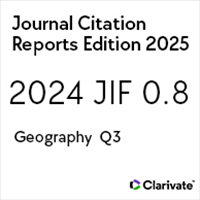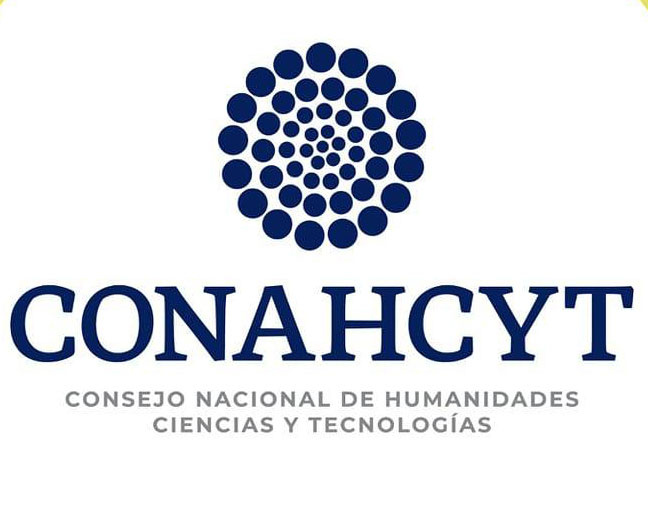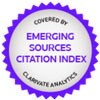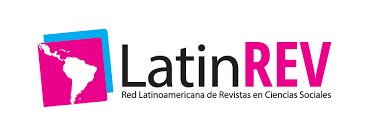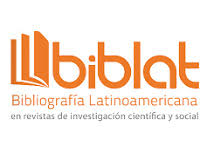La movilidad médica y la interseccionalidad en la frontera entre Estados Unidos y México
Medical mobility and intersectionality across the United States-Mexico border
https://doi.org/10.21670/ref.1816016
Palabras clave:
interseccionalidad, procesos de racialización, movilidad médica, ciudadaníaResumen
El objetivo de este artículo es analizar cómo los procesos interseccionales configuran diferentes grados de movilidad médica a través de la frontera de EE. UU. y México. Este artículo explora cómo factores interseccionales (la raza, el idioma, el estatus socioeconómico y la ciudadanía) moldean los patrones de movilidad médica. La investigación utilizó métodos etnográficos (entrevistas en profundidad y observación participante) durante un periodo de dieciséis meses (desde mayo de 2017 hasta septiembre de 2018) en el Condado de Hidalgo en el Valle del Río Grande de Texas. Los resultados de la investigación son una comprensión etnográfica de los límites de la ciudadanía para los solicitantes de atención médica tanto documentados como no documentados en la región fronteriza, y las circunstancias en las que diferentes residentes de la frontera recurren al bioconsumerismo. La conclusión del artículo hace una contribución única a la literatura al ofrecer perspectivas críticas sobre el privilegio relativo.Abstract The objective of this article is to analyze how intersectional processes shape differing degrees of medical mobility (defined as facility of movement across national borders for the purposes of obtaining health care services or pharmaceuticals) across the U.S.-Mexico border for Spanish-speaking Hispanics and English-speaking Whites. Furthermore, this document explores how intersectional factors such as race, language, socioeconomic status, and citizenship shape medical mobility patterns. The research used ethnographic methods (in-depth interviews and participant observation) over a period of sixteen months (from May 2017 until September 2018) in Hidalgo County in the Rio Grande Valley of Texas. The results of the research are an ethnographic understanding of the limits of citizenship for both documented and undocumented health care seekers in the border region, and the circumstances under which different border residents turn to bioconsumerism. The article’s conclusion makes a unique contribution to the literature by offering critical perspectives on relative privilege.
Citas
Augé, M. (1995). Non-Places: Introduction to an Anthropology of Supermodernity. London, United Kingdom: Verso.
Bauman, Z. (1993). Postmodern Ethics. Oxford, United Kingdom: Blackwell Publishers.
Bowers, L., Gann, C. & Elser, S. (March 28, 2017). Library. Small Area Health Insurance Estimates: 2015 (Report number P30-01). Retrieved from https://www.census.gov/library/publications/2017/demo/p30-01.html
Bridges, K. (2011). Reproducing Race: An Ethnography of Pregnancy as a Site of Racialization. United States: University of California Press.
Cohen, C. (1997). Punks, Bulldaggers, and Welfare Queens: e Radical Potential of Queer Politics. GLQ, 3, 437–465.
Connell, J. (2006). Medical Tourism: Sea, sun, sand, and … surgery. Tourism Management, 27(6), 1093-1100.
Crenshaw, K. (2014). The Structural and Political Dimensions of Intersectional Oppression. In P. R. Grzanka (Ed.), Intersectionality: A Foundations and Frontiers Reader (pp. 16- 21). Boulder, United States: Westview.
Dacia Danton. (October 5, 2017). Interviewer Rosalynn Vega.
Dawn. (November 16, 2017). Interviewer Rosalynn Vega.
Gawande, A. (June 1, 2009). The Cost Conundrum. The New Yorker. Retrieved from https://www.newyorker.com/magazine/2009/06/01/the-cost-conundrum
Grzanka, P. (2014). Intersectionality: A Foundations and Frontiers Reader. Boulder, Colorado, United States: Westview.
Isabela López. (November 17, 2017). Interviewer Rosalynn Vega.
Jade. (March 1, 2018). Interviewer Rosalynn Vega.
Keane Danton. (October 5, 2017). Interviewer Rosalynn Vega.
Laurell, A. C. (2013). Impacto del Seguro Popular en el sistema de salud. Buenos Aires, Argentina: Clacso.
Migration Policy Institute. (n.d.). Unauthorized Immigrant Population Profiles. Retrieved from https://www.migrationpolicy.org/programs/us-immigration-policy-program-data-hub/unauthorized-immigrant-population-profiles
Roberts, E. F. S. & Scheper-Hughes, N. (2011). Introduction to Medical Migrations. Body & Society, 17(2-3), 1-30.
The Dartmouth Atlas of Health Care. (2014). Retrieved from http://www.dartmouthatlas.org/data/map.aspx?ind=225&ch=191&tf=36&loct=3&extent=-14071323.410590487%202305693.8872850095%20-7398676.589409513%206806306.112714991
Thompson, C. (2011). Medical Migrations Afterword: Science as a Vacation? Body & Society, 17(2-3), 205-213.
United States Census Bureau. (n.d.a). American Community Survey (ACS). 2015 ACS 1-year estimates. Retrieved from https://www.census.gov/programs-surveys/acs/technical-documentation/table-and-geography-changes/2015/1-year.html
United States Census Bureau. (n.d.b). American Community Survey: 2014 & 2015 data [Data set]. Retrieved from https://www.census.gov/programs-surveys/acs/news/data-releases/2014/release.html
United States Census Bureau. (n.d.c). American Community Survey (ACS) 2016 ACS 1-year Estimates. Retrieved from https://www.census.gov/programs-surveys/acs/technical-documentation/table-and-geography-changes/2016/1-year.html
United States Census Bureau. (n.d.d). QuickFacts. Hidalgo County, Texas. Retrieved from https://www.census.gov/quickfacts/hidalgocountytexas
Urry, J. (2007). Mobilities. Cambridge, United Kingdom: Polity Press.
Valentina. (November 17, 2017). Interviewer Rosalynn Vega.
Vega, R. (2018). No Alternative: Childbirth, Citizenship, and Indigenous Culture in Mexico. Texas, United States: University of Texas Press.

